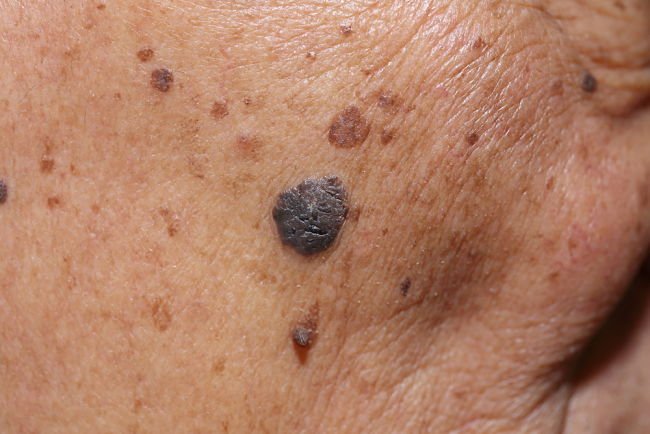5 ways to prevent skin cancer

It is no secret to anyone that the sun’s rays affect our body more and more because the ozone layer that protects us is weakening every day. So, it is time to take action on the matter and apply preventive measures against possible skin cancer. But what can you do to avoid suffering from it? For this we have prepared this article with the 5 best ways to prevent skin cancer.

Table of Contents
How do you know if you have skin cancer?
Checking moles and spots on your body regularly is one way to know if you are suffering from skin cancer, or if there is any indication of it. Therefore, check moles regularly, especially if there is a history of skin cancer in your family. The best way to check this is to be naked in front of a mirror and starting with the face, with a hand mirror to be able to observe the most difficult to visualize moles. However, consulting a doctor is the best way to know if our moles, spots or irregularities on the skin may be signs of the presence of skin cancer.
How to prevent skin cancer?
Checking regularly, and especially looking for new black moles or changes in size, shape, scheme, color or texture, will help you prevent melanoma (skin cancer). Notify your dermatologist immediately if you see any changes. You should even be aware of any pain and abnormal growth. Sunburn can cause damage if it doesn’t go away when the redness fades. That damage can turn into skin cancer over time, and even decades later. Your risk of developing skin cancer actually doubles if you’ve had five or more sunburns in your life.
Here are 5 ways to prevent skin cancer that will protect you and your family.
1. Use sunscreen regularly.
Daily use of a broad-spectrum sunscreen of at least SPF 30 (sun protection factor) is recommended. Sunscreen will not be fully effective until it is absorbed into the skin, this process usually takes about 30 minutes. When you are outdoors, you should reapply sunscreen every two hours, especially on the areas of the scalp, neck and back of the hands, which is where it is commonly lost.
2. Avoid peak sun hours.
It is best if you plan your excursions to the beach and outdoors very early in the morning or in the afternoon after 4. This way you will avoid the harmful ultraviolet (UV) rays of the sun. These are usually strongest between 10 am and 4 pm. You can’t let mild temperatures or a lot of clouds fool you, because the symptoms are hardly noticeable and it’s easy to fool yourself. Clouds won’t protect you, because UV intensity has more to do with the angle of the rays than it does with the temperature or brightness of the sun. Even when the day doesn’t seem especially hot, there can be sun damage to your skin.
3. Cover your skin well.
Not all clothing is the same when it comes to providing protection from the sun. For example, a white T-shirt only provides protection equivalent to a sun protection factor (SPF) of 4. Darker colors or tightly woven fabrics are safer options. Silk and polyester, in particular, are two of the best. Synthetic fabric swimsuits can help protect your skin from hot summer days. You can also wash your clothes in a laundry treatment product that gives the fabric an SPF level of 30 and lasts up to 20 washes.
4. Wear a hat.
Hats are one of the easiest ways to protect yourself from sunburn. Hats with a wide brim over four inches reduce UV exposure to the head and neck by 70 percent. So, the most sensible thing to do is to wear a hat with a brim around it to protect the scalp, forehead, neck, ears, and eyes. Try to avoid straw hats that are thinly woven, as they tend to let some harmful UV rays through. Make sure that whatever hat you wear fits snugly so that you don’t end up sacrificing sun protection to be more comfortable without it.
5. Protect your eyes.
Protecting your eyes is as important as any other part of your body. The eyes are not immune to sun damage, they can suffer from ocular skin cancer, in fact there has been an increase in this disease in recent years. The excessive exposure to sunlight is a risk factor, especially for those who are fair – skinned and blue eyes. Lenses bearing the “CE” mark and the British BS EN standard offer a safe level of UV protection. Wrap-around sunglasses are best for protecting the delicate skin around the eyes.
Always remember.
Skin cancer is distinguished by the abnormal growth of moles, their shape is no longer circular, they are painful to the touch, they are dark in color and constantly generate sensitivity.
These 5 ways to prevent skin cancer will be very useful at all times, however, the first step you should take in the face of any possible threat is to consult a dermatologist specialist. Do not trust only your instincts, confirm or rule out any risk to your health and that of your family.


